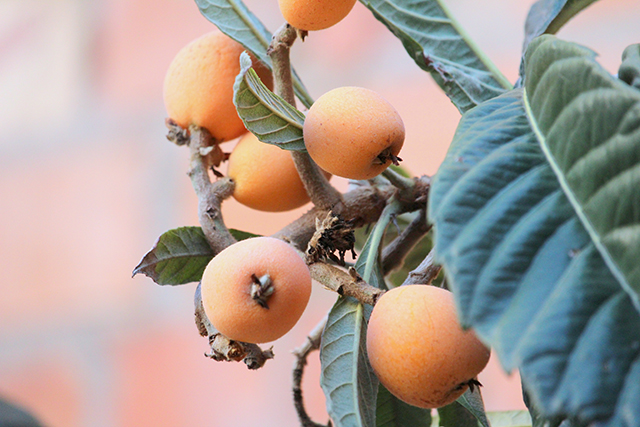Loquat, native to many regions in Asia, exhibits anti-diabetes properties
10/21/2020 / By Evangelyn Rodriguez

Eriobotrya japonica, commonly known as loquat, is an evergreen shrub that belongs to the rose (Rosaceae) family. It is widely cultivated in China and Japan for its edible fruit and seeds, as well as for the medicinal uses of its various parts.
In Traditional Chinese Medicine (TCM), loquat, or pi pa, is used to clear stomach heat, treat cough and eliminate phlegm. When fried in ginger juice, loquat leaves are great for relieving nausea and vomiting. They are also a common ingredient in traditional acne formulas because of their ability to clear the skin.
In a recent study published in the International Journal of Green Pharmacy, researchers from India explored the other medicinal properties of loquat leaves. They found that besides being a rich source of antioxidants, loquat leaves can also inhibit the activity of a-amylase, the enzyme responsible for digesting starch into smaller molecules.
One of the molecules produced from this process is maltose, which can be further broken down into two glucose molecules. Because of the role a-amylase plays in increasing postprandial (after meal) blood glucose levels, inhibitors of this enzyme are used for diabetes management.
Loquat leaves show potent anti-diabetic activity
According to the researchers, not many studies have been done to set a standard for the quality of loquat products, despite the plant’s popularity as a traditional medicine. They believe that various factors, such as location, climate, cultivation and method of collection, can influence the quality and effectiveness of loquat products, especially those used for medicinal purposes.

To address this, the researchers decided to analyze the phytochemical properties of loquat leaves and evaluate their antioxidant and anti-diabetic activities. Qualitative analysis of loquat leaves revealed that they contain tannins, flavonoids, coumarins, steroidal glycosides, alkaloids, quinones, saponins and reducing sugars. An extract derived from the leaves using methanol as solvent showed an almost identical phytochemical profile, save for the absence of saponins.
To assess the antioxidant and anti-diabetic potential of the methanolic extract, the researchers used the DPPH radical scavenging assay and the a-amylase inhibition assay. They found that the loquat extract has a slightly lower half-maximal inhibitory concentration (IC50) than ascorbic acid (vitamin C), which is known to be a very potent antioxidant.
IC50 is a measure of the effectiveness of a particular substance in inhibiting a specific biological or biochemical function — in this case, the damaging oxidation caused by the free radical, DPPH. The lower IC50 value reported for the loquat extract suggests that it has a high antioxidant capacity — higher than ascorbic acid — even at low concentrations.
Meanwhile, in terms of anti-diabetic activity, the researchers observed a similar trend: They found that the IC50 of the loquat extract was lower than the IC50 of acarbose, the standard it was compared to. This indicates that the extract can inhibit the activity of a-amylase better than acarbose, an anti-diabetic drug used to treat Type 2 diabetes.
Based on these findings, the researchers concluded that loquat leaves are a promising natural medicine for diabetes. (Related: Mulberry: A tiny fruit with great anti-diabetes potential.)
Other medicinal uses for loquat
The loquat tree is an ornamental plant that provides food, raw materials and medicine. In the Far East, loquat is a popular cough remedy and is often used as an ingredient of medicinal preparations.
According to studies, loquat leaves have several beneficial properties, including analgesic, antibacterial, antiemetic, antitussive, antiviral, diuretic and expectorant properties. In folk medicine, the leaves are used either fresh or dried. A decoction made from loquat leaves is said to be an effective intestinal astringent that can be used for diarrhea. The same decoction is also great for treating oral thrush and relieving coughs, feverish colds and bronchitis.
The flowers and fruits of the loquat tree, on the other hand, can be used as expectorants. The loquat fruit is also slightly astringent and can be used as a sedative.
Loquat is a useful plant that offers plenty of medicinal benefits, most notably as an alternative treatment for diabetes. You can learn about other medicinal plants like loquat at PlantMedicine.news.
Sources include:
Submit a correction >>
Tagged Under:
alternative medicine, anti-diabetes, antioxidants, diabetes cure, diabetes science, disease treatment, herbal medicine, Herbs, loquat tree, natural cures, natural medicine, remedies, research
This article may contain statements that reflect the opinion of the author



















